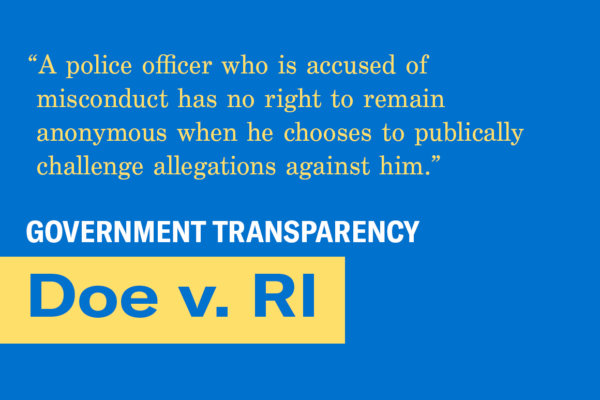Following an ACLU challenge on behalf of local advocacy groups, a former state trooper has agreed to no longer proceed anonymously in suing the state after he was fired. Last week, ACLU of RI attorneys filed a motion on behalf of Black Lives Matter RI PAC and Direct Action for Rights and Equality, asking the court to dismiss the case or require the trooper to include his name in court filings since the matter involved a matter addressing official misconduct and government operations. A court hearing had been set for later this month on the ACLU’s motion, but today the officer, Jason Lawton, filed court papers agreeing to use his name.
Lawton, who filed the suit as “John Doe” earlier this year, first received a two-day suspension and an additional probationary period for failing to notify superiors that he was dating a subordinate. A few weeks later, he was purportedly found “heavily intoxicated” on a day he failed to show up to work, and this prompted his termination. Doe’s suit claims that his firing violated the state’s controversial Law Enforcement Officers’ Bill of Rights (LEOBOR), a statute providing police strong protections against discipline.
The motion filed last week by ACLU of RI cooperating attorneys Jared Goldstein and Lynette Labinger, on behalf of the BLM RI PAC and DARE, argued “the constitutionally-protected principle of judicial openness requires that litigants ordinarily must proceed in their own names,” and that while “the case involves potentially embarrassing allegations that the plaintiff committed official misconduct, the possibility of embarrassment does not justify shielding the identity of a public official from the public that he is sworn to serve.”
The ACLU has agreed to dismiss its motion in light of today’s court filing. In light of this case, the ACLU of RI plans to examine whether any other similar LEOBOR lawsuits by police have been filed anonymously.
ACLU of RI cooperating attorney Goldstein said today: “Today’s filing carries out an important constitutional principle: the public has a right to know what happens in our courts and in our police departments.”

